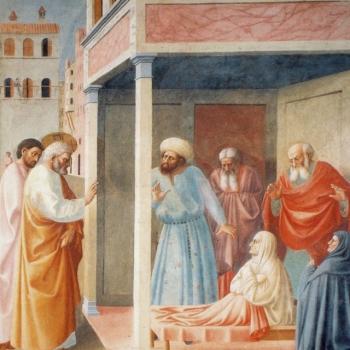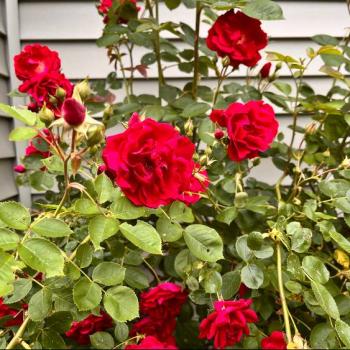In the same way, a pure mind, even if we can make it pure for only a little while, can give rise to results way in excess of its size.
And, in speaking about specific qualities, here's how one teacher named Mingyur Rinpoche replied when asked, "What does blessing mean?"
It is a particular type of power... various medicines have various types of strength, or power. Water has a power to wet things and clean things. Fire has a power to burn. When we put water in a field, it helps to grow flowers or crops. All phenomena have a particular power associated with them... Blessing comes as a particular type of power (to accomplish a specific purpose).
For example, when one prays, "Grant me your blessing that uncontrived devotion may arise in me," what happens is that one receives that power, the blessing, and one's defilements and obscurations are purified and dispelled. If one gives rise to devotion and faith and supplicates, then one has the blessing connected with arising of faith and devotion.
Many Different Practices
There are many different mantras, and many different practices that one can choose. Sometimes these are called yidam or "deity" practices.
I think it's important to consider clearly here what is meant by the word "deity" in Buddhism. This is a difficult word for Westerners. We have a 2000-year monotheistic tradition that is in our Western soul. And any term that brings to mind our Western Tradition needs to be considered carefully.
All of the qualities represented by figures in Buddhism are within each of us. Every quality, of love, intelligence, purity, healing power -- but usually we don't see ourselves this way. If our view of the self were to fluctuate, even a little, we would find that simultaneously the way we view images representing enlightened qualities would change too.
If we see ourselves as ordinary beings, and we experience ourselves as fundamentally without these qualities, then naturally if we think of Buddha's or Bodhisattva's qualities existing at all, they are felt to exist outside of us. If there is a change in our self-view, or the way we experience our self-nature, then when we look at these images we can feel that "this quality is there -- it is in Tradition and it is in me, as potential perhaps, but in the same way the fully developed flower-and-fruit giving tree is in the seed and the first shoots."
In addition to there being an external, historical aspect, like a reservoir of a particular energy, that can be contacted, we can also feel that the image or the idea of what is called a "deity" represents aspects of our own nature, fully developed.
Perhaps when we are there, when we are the full expression of some enlightened quality, then we could look at the image, sometimes called "deity," and, with understanding, say "That is me."
There may be one place where the Western idea of a deity and the way it is made use of in the Vajrayana overlap, and that is in its external aspect. Names and forms of Buddhas and bodhisattvas can be called on, and they will respond. Not for everyone, and not always, but this is an inherited truth, this has been many people's experience in many places throughout time. I've had this experience myself on many occasions or else I probably wouldn't be writing this.
Actually, many people have had the experience that mantra and prayer really do work in the ways they are praised -- to heal, to harmonize, to clarify. But, again, as we say "the proof is in the pudding."
My feeling is that if others, or if even one other person could hear about these things, be inspired to practice, and gain some of this benefit, then my efforts here will have met with success. So I know I at least have to try to speak of these things.
To call on a holy Name, and to feel some response, this is precious, of inconceivable worth. But there is more intended by the practice of mantra and the forms passed down to us to be meditated upon.
We can receive their benefit as needed in our lives. And we are also encouraged to cultivate this understanding that we all have all these qualities within us. We are encouraged to bring them out as much as we can, and to live and act in this world, in enlightened and enlightening ways, with compassion and wisdom.
Mahayana
What's called ‘Mahayana' in Buddhist traditions refers to a re-orientation toward teachings, self, and others in the world.
All Buddhist lineages have teachings about love and compassion, but in Mahayana this aspect is placed right in the center. In this way of thought, the needs of all others, inclusively, and compassion for all is emphasized, and then every other practice, such as calm meditation, contemplation on mortality, karma, or realizing selflessness is seen in relation to the suffering and confusion of living beings.




